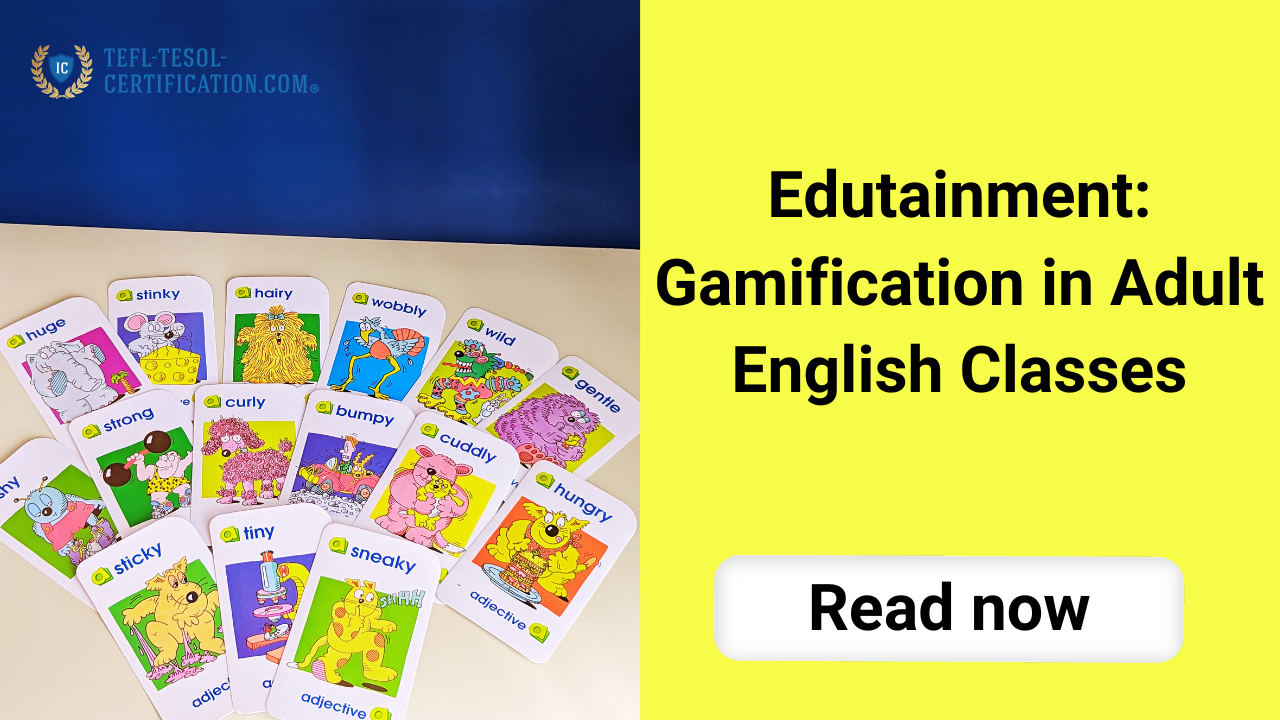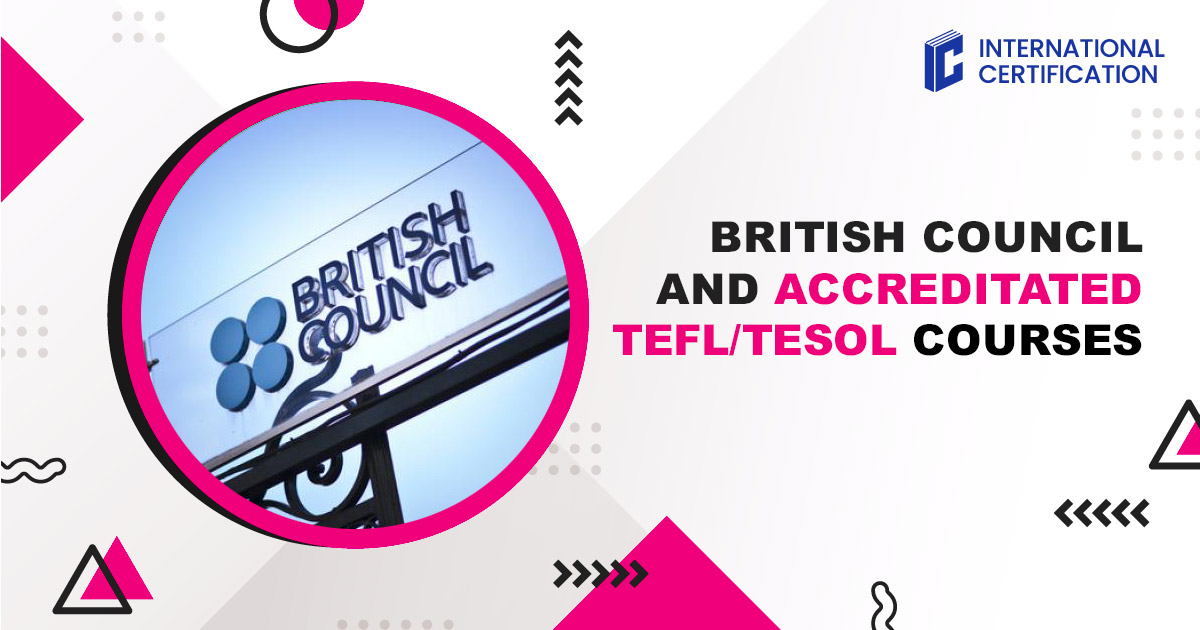Table of contents
Imagine this: an evening adult ESL class. Many learners have just finished a long workday—energy is low and eyelids are heavy. Then you say, “Let’s play a game!” What do you think happens in the classroom? 😊 You might picture awkward silence or surprised looks. I thought the same at first. Have you ever tried offering a game to adult learners in an English lesson? I’ll admit, I was initially skeptical: gamification in adult English classes sounded like something from kindergarten.
But now, after several years of teaching, I’m convinced that game-based learning works just as well for adults as it does for kids. In this article, I’ll show you how to turn adult English lessons into true edutainment—learning that both teaches and inspires. Get ready; this will be fun and practical!
Game Mechanics in Adult Learning: Why They Work
Let’s start simple: what is gamification and why use it? Put briefly, you take game elements—rules, points, badges, challenges—and weave them into the learning process. The goal isn’t merely to entertain; it’s to help learners study with genuine engagement. A serious lesson becomes an exciting challenge, and routine drills turn into motivating tasks.
Why do adults respond so well to these game-like approaches? Because we adults like to play too—our “games” just look different. We care about a sense of progress, recognition, healthy competition, and varied activities. Gamification provides exactly that in adult ESL, packaged in a purpose-driven, educational format.
- Boosted motivation: When adults earn points or receive praise for a task, they feel a clear sense of achievement. That momentum drives further effort.
- Greater engagement: A game format draws people in. Even those who arrive tired after work get involved—because the lesson becomes a game they want to play.
- Low-stress room for errors: In a game, mistakes feel safer. Got an answer wrong? No problem—try again. This reduces tension and the fear of speaking English.
- Lesson variety: Gamification breaks up routine practice. New formats—quests, quizzes, role-plays—make classes more interesting and improve retention.
It’s no surprise that teaching research highlights how game-based approaches reduce stress and improve information retention—even for adult learners. I’ve seen quiet, reserved students become more confident speakers the moment a game enters the lesson—they forget the fear of making mistakes. In other words, the benefits aren’t just theoretical—both studies and classroom experience back them up.
🎯 Important: Gamification is a tool, not a replacement for instruction. Learning still comes first—it’s just delivered in a game-like format. Adult learners appreciate meaningful tasks, even when they’re presented as “fun.” Every game element should lead to a learning objective: review content, practice a skill, or spark discussion in English.
Edutainment: Helping Adults Learn English with a Smile
You’ve probably heard the term edutainment, a blend of education and entertainment. It means learning that both teaches and amuses. The edutainment approach proves that adults can study English enthusiastically—if the atmosphere is right. In today’s education landscape, applying such approaches is the norm. Corporate training turns into business simulations, language apps use leaderboards and rewards, and online courses award badges for completed tasks. You’ve likely seen it: complete a lesson, earn points and virtual trophies. Adults enjoy this as much as younger learners!
Until recently, games in class were associated with children’s groups only. Times have changed. Teachers worldwide successfully apply gamification with adults. When I took a 120-hour online TEFL/TESOL course for teachers, one module focused on game-based methods. Honestly, I was surprised—such an official international certificate including “games”? 😅 But I could notice the results in practice: as soon as I introduced games, my students became noticeably more energetic. Lessons were not boring, and the group suddenly had fresh enthusiasm and new topics to discuss. Since then, I’ve been a firm believer in edutainment.
Note that gamification for adults is not childish activities like “stand in a circle and sing.” Game formats are adapted to mature learners. Think business simulations, knowledge quizzes, and real-case analysis—everything aligned with adults’ experience and interests. This approach respects their background while adding a spark of fun and friendly competition to learning.
💡 By the way, using this technique requires balance: a game should not push the lesson into chaos or become empty amusement. Done thoughtfully, the payoff is substantial—proven in real classrooms.
Okay, that’s the theory. How does this affect achievement and persistence? Let’s talk about adult learner motivation—directly connected to game-based strategies.
🚀 More students, 💰 higher income, 🌍 complete freedom! ✅ 112 verified platforms with top rates ⏳ Flexible schedule – work whenever and as much as you want 🎯 Simple requirements – start earning right away 💎 Boost your career and income by teaching students worldwide!
Motivating Adult ESL Students: Mission Possible
How do we support an adult learner’s motivation when they juggle work, family, and limited study time? Many teachers ask this. Adults often have strong intrinsic motivation—earning a promotion, immigrating, or studying abroad. But even the most determined learners get tired or lose interest when lessons feel repetitive. That’s where games come in.
Game elements can breathe new life into lessons for adult students. A touch of friendly competition, a surprising task format, the chance to joke in English—and suddenly the learner studies with enthusiasm. 😊 You might encounter initial skepticism about “games.” Some older learners may say, “I’m an adult; I don’t need games.” In that case, choose games aligned with real-life situations—e.g., a negotiation scenario as a structured role-play. Most learners quickly get hooked and open up! At the next class, these adult learners are the ones asking, “Are we playing again today?” Interest and engagement climb up—and so does language progress. 🚀
Of course, everyone is unique and responses vary. Still, many learners admit that if a lesson includes a game, they look forward to it and skip class less often—curious to see what the teacher has planned. Overall, experience shows that gamification helps maintain high motivation. Adults enjoy sensing achievement, testing knowledge in friendly competition, and simply having fun while learning. Our task is to harness that energy for better outcomes. Great—now which specific games work well with adults?
💡 Unlock the secrets to doubling your teaching income with our exclusive checklist! 🎯 This checklist is designed for English teachers who want to 📈 attract more students and 🔥 keep them engaged for the long term.
Classroom Games for Adult English Learners: Practical Examples
Let’s move from theory to practice. Here are several game activities that work with adult groups. You can adapt them to your learners’ level and the lesson topic:
- Role-play: Ask students to act out real-life situations in English—business negotiations, a job interview, or an airport check-in. This pushes spontaneous speaking and helps learners use language in an authentic context.
- Quiz competition: Split the class into teams and run a short quiz on recent content. Mix serious questions (grammar, vocabulary) with lighthearted ones. The competitive spirit makes review genuinely enjoyable.
- Word games: Use cards or online tools to practice new lexis. Try “Alias” (explain the word without saying it), build crosswords, or create association chains. Adults often dive into these tasks and reinforce vocabulary almost effortlessly.
- Quest or case challenge: Design a mini investigation or business case that requires English to solve. It might involve clue-based information searches or collaborative problem-solving. This develops language skills and critical thinking.
- Board game adaptation: Repurpose well-known games for language learning. For example, “Monopoly” with English prompt cards or a simple roll-and-move board with a task on every square. The randomness of a dice roll adds excitement while learners review content without even noticing.
- Points and rewards: Introduce a course-long incentive system. Award points or badges for participation and progress. At month’s end, let learners exchange “game currency” for symbolic prizes or crown an “Player of the Month.” Long-term gamification sustains interest and highlights progress.
💡 Tip: Time-box each game (e.g., 10–15 minutes) to keep the focus on learning objectives. Always explain rules in advance and ensure the task is clear. In large groups, provide written instructions so no one gets lost. Most importantly—keep the atmosphere friendly. Games should unite learners, not stress them out. Used wisely, game-based methods noticeably boost interest and the effectiveness of instruction.
And start earning money 💸 by teaching English in your own country, abroad, or online from anywhere on the planet! 🎁 Gifts and bonuses: professional support from your personal coach 🧑🏫 and job placement assistant 💼.
What If Adults Don’t Want to Play?
Some teachers worry: what if my adult students reject games as “not serious”? It’s rare, but possible. Here are a few practical tactics:
- Start small: If the group is new to games, introduce them gradually. Try a short warm-up or a fun question at the start before running a full game.
- Explain the purpose: Tell learners why you’re using a game: “This quiz reinforces last week’s topic,” or “Let’s role-play to practice the new phrases.” When adults see the value, they’re more willing to participate.
- Join in yourself: Play alongside the group. Model that nothing about it is “childish.” When the teacher joins enthusiastically, others relax and follow.
- Respect a ‘no’: If a learner refuses to participate—temporarily or in general—don’t push. Offer the role of judge or observer. Often, after watching others enjoy the activity, even skeptics choose to join later.
Usually, after one or two lessons, everyone adjusts to the new format and starts anticipating game breaks. With patience and a positive teacher mindset, initial doubts won’t stop you from integrating valuable gamification elements into your curriculum.
And yes—games work brilliantly online, too. Modern platforms make it easy to run quizzes and games. Use ready-made templates (crosswords, puzzles, tests) or videoconferencing tools: create breakout rooms for team competitions, share cards and visuals, and annotate on interactive boards. Vocabulary apps and virtual flashcards bring lessons to life even at a distance.
Be Bold—Play On!
Gamification in adult English lessons truly works. We’ve explored both the “why” and the “how,” and—most importantly—the tangible benefits. Games even strengthen group cohesion: shared laughter and friendly competition help learners become a supportive team. Now it’s your turn: try adding just one new game-based technique to your next lesson and watch the atmosphere shift. Many ESL colleagues already use gamification: some build full learning quests; others award points for homework and exchange them for small bonuses. The possibilities are almost endless—limited only by your imagination.
If you want more ideas and confidence, consider exploring modern methodology in specialized TEFL/TESOL courses. These programs provide both practical strategies and an internationally recognized certificate. TEFL stands for Teaching English as a Foreign Language, and holding a TEFL certificate opens a world of opportunities for teachers. 🚀 With a TEFL certificate, you can teach in Argentina—or from a beach in Hawaii—if you wish.
Ultimately, our mission as teachers is to be effective and inspiring. If game-based methods help adult learners speak more freely in English, then they’re worth trying. Let your lessons bring joy to you and your students—confidence will grow, knowledge will deepen, and skills will strengthen. Adults can learn joyfully too—just give it a try! Good luck! 😊
Terms used:
EFL, ESL, TEFL, TESOL

York Fern
An English instructor with 12+ years of experience. I work for an online school and travel the world, teaching students from various countries, leveraging my TEFL/TESOL certification. Seeing the world's oceans, mountains, and cities with my own eyes has given me a profound appreciation for the importance of quality education and international communication.
and start earning by teaching English in your country, abroad, or online from anywhere in the world! Order the course with a 50% discount 💸 and receive as a gift the support of a personal coach 👨🏫 and job placement assistant! 🎁🚀 Hurry, limited spots available! 🏃♂️💨
💡 Unlock the secrets to doubling your teaching income with our exclusive checklist! 🎯 This checklist is designed for English teachers who want to 📈 attract more students and 🔥 keep them engaged for the long term.
🚀 More students, 💰 higher income, 🌍 complete freedom! ✅ 112 verified platforms with top rates ⏳ Flexible schedule – work whenever and as much as you want 🎯 Simple requirements – start earning right away 💎 Boost your career and income by teaching students worldwide!
choose us?




